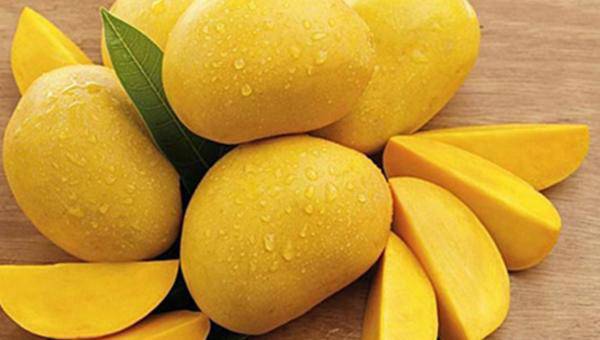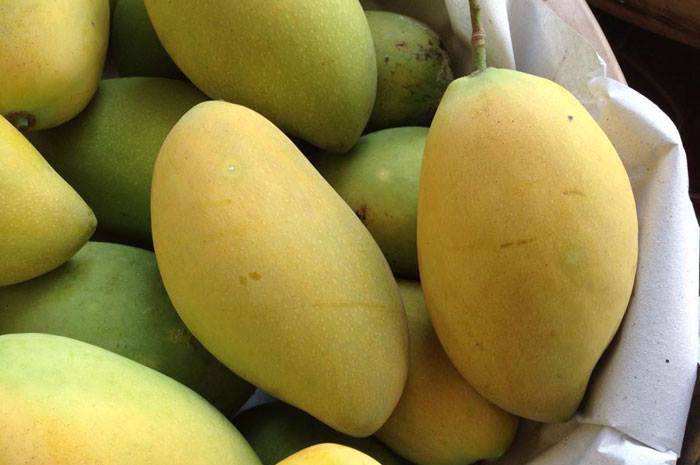The mango is a tropical fruit tree, native to eastern India and bordering areas such as Burma, Vietnam and Malaysia. Due to suitable soil conditions, mangoes in our country are grown from South to North.
It is a popular fruit in summer, at an affordable price, so mango is popular among Vietnamese people. Currently the prices for several types of mangoes are as follows: Taiwanese mangoes around 25,000 VND/kg, Hoa Loc sand mangoes around 75,000 VND/kg, acacia mangoes around 23,000 VND/kg, Cat Chu mangoes around 39,000 VND/kg….
Illustration
Naturally ripe mangoes have high nutritional value. Many studies have found that the nutrients in mangoes actually help fight UVB-related skin aging. Moreover, thanks to the content of vitamin A, mango has the ability to encourage skin regeneration. The retinol in vitamin A actually helps stimulate the production of new skin cells. It has been shown not only to protect against collagen breakdown, but also to help slow the aging process.
Mangoes have also been used to improve digestion for thousands of years in traditional Indian medicine. One study found that mangoes not only had an anti-diarrheal effect, but also exhibited an anti-bacterial effect by inhibiting the growth of both Streptococcus aureus and Proteus vulgaris.
Another study found that when 20 obese adults ate mangoes daily for 12 weeks, it significantly reduced their blood sugar levels. Although mangoes did not cause weight changes, the researchers said that regular mango consumption had a positive effect on fasting blood sugar levels.
But if we buy mangoes with chemicals, it will harm the user. Therefore, when shopping for mangoes, you need the skill to be able to differentiate between naturally ripe mangoes and chemically impregnated mangoes to speed up ripening.

Illustration
Mangoes that are ripe due to stimulant drugs often ripen unevenly, the fruit is unscented, and the stems are black.
Fruits that are green on the outside or have a pale yellow-green color, but are ripe and yellow on the inside, are also at risk of chemical exposure.
When eaten, these mangoes often have a bland taste because they are pressed, not ripening naturally.
When asked about her experience buying mangoes without chemicals, Ms. Huyen, owner of a fruit stall in Tran Khat Chan said: “Especially about mangoes, when buying, you should pay attention to mango stems, ripe mangoes with fresh stems. , uniform yellow color, when pressed the flesh is soft, while mango contains chemicals, stems wilt , the top is damaged while the bottom is still green, upon smelling a naturally ripe mango it has a distinctive aroma and the mango has a distinctive aroma. Chemically impregnated mangoes are usually odorless or sometimes have a chemical smell. Ripe mangoes are naturally sweet and can be stored longer than chemically treated mango.
Another fruit shop owner also shared: “Mango with chemical color is often uneven, the stem wilts, the mango often appears some black spots, the stem is not fresh. On the other hand, naturally ripe mango is uniform in color, bright yellow, no bruises and black spots. on mango.
at Blogtuan.info – Source: Eva.vn – Read the original article here





